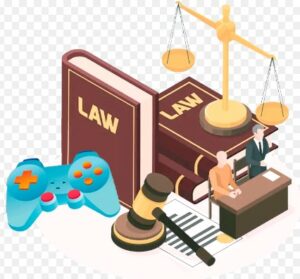Gaming licenses are a crucial aspect of the gaming industry, regulating everything from casino operations to video game development. In this comprehensive overview, we delve into the intricate world of gaming licenses, exploring their types, regulations, and impact on the gaming landscape.

Understanding Gaming Licenses
Gaming licenses are legal permissions granted by regulatory authorities to individuals, businesses, or organizations involved in gaming-related activities. These licenses serve to ensure compliance with laws and regulations, protect consumers, and uphold the integrity and reputation of the gaming industry.
Types of Gaming Licenses
Gaming licenses come in various forms, each tailored to specific sectors and activities within the gaming industry:
1. Casino Licenses
Casino licenses authorize the operation of land-based or online casinos, covering activities such as slot machines, table games, poker rooms, and sports betting. These licenses are typically issued by government agencies or regulatory bodies responsible for overseeing gambling activities in a particular jurisdiction.
2. Gaming Manufacturer Licenses
Gaming manufacturer licenses are granted to companies involved in the manufacturing, distribution, or sale of gaming equipment and devices, such as slot machines, gaming consoles, and software platforms. These licenses ensure that gaming products meet regulatory standards for fairness, security, and integrity.
3. Game Developer Licenses
Game developer licenses are required for individuals or companies involved in the creation, publishing, or distribution of video games, including mobile games, console games, and online games. These licenses may involve compliance with age ratings, content guidelines, and intellectual property laws.
4. Esports Licenses
Esports licenses authorize the organization and operation of esports tournaments, leagues, and events, covering aspects such as player eligibility, prize pools, broadcasting rights, and sponsorship agreements. These licenses ensure fair competition, player safety, and compliance with esports regulations.
Regulatory Framework for Gaming Licenses
Gaming licenses are subject to regulation by government agencies, regulatory bodies, and industry associations responsible for overseeing gaming activities and enforcing compliance with relevant laws and regulations. Key elements of the regulatory framework for gaming licenses include:
1. Legal Requirements
Gaming licenses are issued based on specific legal requirements established by legislation, statutes, or regulations governing gambling activities in a particular jurisdiction. These requirements may vary depending on factors such as the type of gaming activity, the location of the operation, and the target audience.
2. Licensing Process
The licensing process typically involves thorough background checks, financial investigations, and compliance assessments to ensure that applicants meet eligibility criteria and regulatory standards. Applicants may be required to submit detailed applications, undergo interviews, and provide supporting documentation to support their suitability for a gaming license.
3. Regulatory Oversight
Regulatory authorities play a crucial role in overseeing gaming licenses, monitoring compliance with licensing conditions, and investigating complaints or violations of gaming regulations. These authorities have the power to impose sanctions, fines, or license revocations on licensees found to be in breach of regulatory requirements.
4. Consumer Protection
Gaming licenses are designed to protect consumers by ensuring fairness, transparency, and integrity in gaming activities. Regulatory measures such as responsible gambling programs, age verification procedures, and dispute resolution mechanisms help safeguard the interests of players and mitigate the risks associated with gaming.
Impact of Gaming Licenses on the Industry
Gaming licenses have a significant impact on the gaming industry, influencing market dynamics, industry standards, and consumer confidence. Some key aspects of their impact include:
1. Market Access
Gaming licenses determine access to regulated markets and jurisdictions, affecting the ability of operators, manufacturers, and developers to enter new markets and expand their business operations. Obtaining a gaming license is often a prerequisite for participating in legal gaming activities and accessing lucrative market opportunities.
2. Compliance Costs
Compliance with gaming licenses entails significant costs associated with application fees, regulatory compliance measures, ongoing monitoring, and reporting requirements. These costs can impact the profitability and viability of gaming operations, particularly for smaller businesses or startups seeking to enter the industry.
3. Industry Reputation
Gaming licenses serve as a mark of credibility, trustworthiness, and regulatory compliance for businesses operating in the gaming industry. Holding a valid gaming license enhances the reputation and legitimacy of operators, manufacturers, and developers, instilling confidence in consumers, investors, and regulatory authorities.
4. Regulatory Innovation
Gaming licenses drive regulatory innovation and evolution in response to changing industry trends, technological advancements, and consumer preferences. Regulatory authorities continually update licensing requirements, standards, and enforcement measures. This is to address emerging issues such as online gaming, cryptocurrency, and esports.
Conclusion
Gaming licenses are a fundamental aspect of the gaming industry. Effectively providing legal authorization, regulatory oversight, and consumer protection for gaming activities. Understanding the types, regulations, and impact of gaming licenses. This is essential for stakeholders in the gaming industry. Inclusive of operators, manufacturers, developers, and regulators. By navigating the complex world of gaming licenses effectively, stakeholders can ensure compliance. They can foster industry growth, and uphold the integrity of the gaming ecosystem.